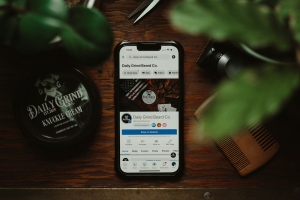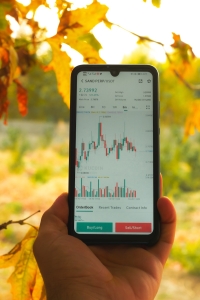Case Studies: Successful Marketing Campaigns Driven by Market Research Insights
Get Started
Call-for-action
Tel: (+234) 802 320 0801, (+234) 807 576 5799
Email: info@Stonehillresearch.com
Office Address: 5, Ishola Bello Close, Iyalla Off Street, Alausa, Ikeja, Lagos, Nigeria
Foreword
In the fast-growing dimension of marketing research, the only way to have a successful market campaign is by comprehending and catering for the needs and wants of the target audience. In marketing research parlance, creativity and innovation are the bedrock of casting appealing market campaigns towards the target audience, not only that, having a deep insight about marketing campaigns is hinged on the rigorous market research. These creates the paths towards relevant strategies which synchronize with consumer preferences.
This blog post is aimed at exploring the interpersonal relationship that exist between market research and successful marketing campaigns through the eyes of some case studies. By journeying into the operation of some existing company, we intend to analyze the background mechanisms that translate ordinary concepts to extraordinary concepts which was inspired by a profound comprehension of consumer behavior and choices.
Meaning Of Successful Marketing Campaigns
A successful marketing campaign requires thorough research, a deep understanding of the target audience, compelling content, social media leverage, creative yet relevant approaches, and precise messaging with clear calls to action. Successful marketing campaign is about creating a promotion which is designed to meet with a specific goal with a starting and an ending time frame. Successful marketing involves proper planning. Successful marketing campaign involves thorough research into the market, deeper understanding of the target audience, appealing content, social media approaches, etc. The features of a successful marketing campaign include; The audience, content, offer, method and the follow-up.
Essentials Of Market Research in Successful Campaigns
The essence of market research is to help researchers to determine the magnitude of the industry, to be conversant with the active and indirect competitors, to know the strengths and weaknesses. By this you can come up with brand positioning, competitive advantage and how to go about each of them during the marketing campaigns. The purpose of marketing research in successful campaign takes an applied dimension to the basics of marketing research by providing instances from the business spheres of marketing research and showing prospects how to apply marketing research results.
Goals Of Case Studies in Comprehending Proficient Strategies
Case studies are invaluable instruments for grasping effective strategies. They offer insights into the contextual realities, extracting resourceful knowledge, ensuring critical thinking, closing the gap between the theory and the practical and establishing reflective learning. Market researchers embark on an adventure of exploration by interrogating real-market scenarios, the journey helps discover and finetune marketing strategies, grinding their abilities to analyze complexities. It also helps to embrace the multifaceted aims of case studies, scholars, Practioners alike to glean insights and cultivate the knowledge needed for success in diverse areas. Case studies enable reflective learning, it makes individuals to analyze their assumptions, sentiments, and decision-making procedures. By coming across diverse phenomenon such as opinions, uncertainties, and ethical issues presented in case ordeals, researchers then develop self-awareness and ethical discernment. This reflective process obstructs further learning and personal growth, administering a mindset fertile for lifelong development and professional prowess.
Case studies serve as important tools across various disciplines, lighting up real-world scenarios to initiate effective strategies. Be it in business, academics, or medical care, the enormous dimension of case studies provides an unequalled avenue for understanding.
General Summary of Market Research
The hallmark of market research is hinged on the systematic collection, systematic recording and systematic analyses of data about the target audience, market competitors, and the market community. Market research is purposed to provide interpretations into, market trends, competitive-dynamics to support business decision-making and customer reactions. The general overview of the key aspects of market research involves the following;
Defining Objectives: Market research commences with identifying the distinct objectives. These has to do with comprehending consumer preferences, assessing the size of the market, identifying competitor strategies/new market opportunities.
Research Outline: Usually, market researchers do design a plan showcasing how data will be gathered and examined. This involves designing the research techniques such as observational studies, interviews, data analysis techniques, surveys, sample size, and focus groups.
Gathering of Data: Market researchers collect data through various techniques using both primary and secondary sources like; interviews, observations, surveys, online databases, government publications, and industry reports.
Data evaluation: Immediately data is collected, the next step is to evaluate it to extract patterns, insights, and trends. Statistical analysis and data visualization methods are frequently used to create sense of the data.
Explaining the Results: Market researchers explains the findings within the confine of the research objectives. They arrive at conclusions and give recommendations based on the understanding gained from the data examination.
Writing research report: The results are typically written out in an extensive report. This report explains the methodology, the objectives, the findings, the conclusions, and the recommendations.
Making Decision: The understanding acquired from market research helps to make informed, strategic decisions like; pricing decisions, marketing strategies, market entry strategies and product development.
Feedback: Research process is not complete until feedback is ensured. Market research is a continuous process, and companies need to consistently monitor consumer preferences, competitive dynamics and market trends in order to stay ahead.
Meaning And Goals of Market Research
Market research can be defined as the process of gathering, analyzing, interpreting and evaluating information about a market, its target audience, its competitors and other determining factors. Basically, the purpose of market research is to make insights into the purchasing behaviors, the customer preferences and the market trends available for businesses to make informed decisions about their services, strategies and products. Market research is all about various techniques (i.e. focus group, surveys, data analysis, observations, interviews, etc.) used in detecting the right update about the market trend in order to help businesses assess the competitive landscape. Market research plays an undeniable role in mentoring businesses to make strategic decisions and maximize their chances in the marketplace.
The goals of market research vary depending on what a business or organization is required of. In spite of the variances, there are some usual goals of marketing research and it include the following:
- Comprehending the target marketplace
- Discovering the market opportunities
- Exploring market demand
- Analyzing the market competitors and its competitive landscape
- Test running the market strategies
- Avoiding Risks to The Barest Minimum
Types Of Market Research Techniques
Quantitative Research:
Quantitative research is defined as the technique of market research which involves numerically gathering of data to quantify and comprehend market patterns and trends in a population or sample. Quantitative research measures or quantifies variables and characteristics within a target population.
The features of quantitative research include the following; Structured data gathering, robust sample sizes, Descriptive statistical analysis, Objective measurement, General Findings, Definite questions, Measurable results, etc.
Qualitative Research
Qualitative research is a method used in social sciences and other fields to gather non-numerical data, focusing on understanding the underlying reasons, motivations, and opinions of individuals. Unlike quantitative research, which deals with measurable quantities and statistical analysis, qualitative research seeks to explore nuances, meanings, and interpretations of phenomena.
Qualitative research can be defined as a technique used in social sciences and other fields to collect non-numerical data which focuses on the background reasons, intentions and views of individuals. Qualitative research dwells on meanings and interpretations of concepts unlike quantitative research which focuses on numerical data. The features of qualitative research include detailed data, Subjectivity, Flexibility, In-depth exploration and understanding the context
Combined-Method Approaches
Combined-method approaches, also known as mixed-methods research, integrate both qualitative and quantitative methods within a single study or research project. This approach allows researchers to leverage the strengths of both qualitative and quantitative methodologies to provide a more comprehensive understanding of the research problem.
Combined-method approaches cab be defined as process whereby the researcher integrates both qualitative and quantitative technique within a single project. Mixed-technique approach allows researchers to have a robust analytical report on a project being carried out. This method uses integration, pragmatic approach, concurrent design, triangulation, etc. as some of its features.
Responsibility Of Market Division in Research
Market division in a company literarily plays an undeniable role in carrying out research activities, its key responsibilities are as follows:
Market examination: Market examination which is also known as market analysis involves carrying out elaborate analysis of market trends, which include the size of the market, the growth opportunities of the market, and the upcoming trends of the market. Market analysis focuses on collecting data on consumer preferences, consumer buying behaviors, and market competitor strategies.
Consumer Research: Consumer research involves the process of carrying out research in order to comprehend the needs of the consumers, consumer preferences, and the pain points which could include qualitative and quantitative research methods to collect insightful information about consumer behaviors and preferences.
Competition Analysis: This entails knowing the competitors’ energy, weak point, means, and market structuring. It is also about closely following the competitors’ service or products, product pricing, product distribution mediums, and market the general market activities to discover gains and the market threats.
Product Validity: Product validity has to do with discovering the gaps in the market, testing the concepts, validating the characteristics and the benefits of a product. This can only be achieved by working together with the product development teams in order to get consumer response and insights for the development of the new product.
Market division: Market division is about dividing the market based on demography, psychography, geography, and the behavioral tendencies to discover target audience segments.
Key performance indicators: This is about monitoring the effectiveness of the key performance indicators, like brand visibility, customer involvement, and sales parameters, to quantify the effect of marketing strategies and utilize upcoming campaigns.
Marketing update: This is about tracking the trends in the industry, the regulatory changes and the macroeconomic criteria that can affect the business which provides timely and significant market intelligence to spur decision-making.
Future trends demands and Planning: This is about narrating the future of market trend and demand in conjunction with sales performance based on available data, marketing trends, and other factors which helps the organization expect changes in the market and design strategic plans to hold on to opportunities and avert risks.
Features Of Successful Marketing Campaigns
Objectives and goals of successful marketing campaigns
Basically, successful marketing campaigns aspires to achieve limitless objectives and goals depending on the context, product or services, target audience and industry. The main goals of market campaigns are to increase brand awareness among the target audience. It can be achieved via various mean like social media, tv/radio advertising, content marketing, public relations, etc. Universally, marketing campaigns aspires to pilot leads and conversions in form of sales, subscriptions, downloads, or research. The impact of a market campaign can often be quantified by its ability to develop reasonable business result. In doing this, strong relationships with customers are built for long-term success. Marketing campaigns usually help foster involvement and commitment by creating relevant content, individual experiences for interaction with the brand. Market campaign is also imbued with the objective of educating the target audience about a product, about the service offered, and industry related issues. Marketing campaigns also help to highlight the USP (Unique selling point) and cherish the justification of products and services, which helps businesses to differentiate its products or services from the market competitors and positions it in the brain of the consumers. Marketing campaigns serve as an avenue to gather valuable feedback from customers, which can be used to redefine products and services, improve customer experiences, and update future marketing strategies.
Case Study 1:
Share A Coke Campaign by Coca-Cola’:
‘Share a coke campaign reveals the impact of emotional connections in the marketing world. Coca-Cola revived its brand and rekindled the interest of its customers when soda sales declined and when consumers preferences were shifted towards beverages in some years back.
The market research which was conducted then unveiled the urge among consumers, product that shows their identity and individual experience. After the coke researching team have gained required insights, Coca-Cola dwelt on it by bringing share a coke campaign on board which substituted the logo of the brand on coke bottles and cans with the inscription of popular names and little phrases, this market campaign inspired consumers to share the brand’s product with their friends and families, making use of emotional appeal by standing on market inquiry interpretations to blend their product information to successfully revive its brand and sparked renewed consumer patronage.
Afterwards, share a Coke campaign instantly emerged to become a global concept which generated an elaborate social media awareness and drove increased in sales. The campaign made consumers buzz stores to search for cans and bottles that bear their names, creating a sense of fun and community around the brand. Coca-Cola’s creative approach did not only revive its main products it also empowered its connections with the target audience in a fast-growing competitive market. Coca-Cola’s campaign illustrated the power of personalizing and real storytelling in the marketing place.
Case Study 2
Belong Anywhere Campaign by Airbnb:
Airbnb took a U-turn in offering an exceptional travel experience and forms of hospitality equal to non. But as the company spread universally it faced the problem of building loyalty and avoiding cultural challenges. Market research which was conducted went a long way in building Airbnb’s image of belong to anywhere campaign which sought to dwell on cultural baptism and inclusion.
By the virtue of comprehensive market research, the company was able to gain access into the travelers’ willingness to connect with cultures and communities. What many travelers wanted was discovered and through that, Airbnb designed a market campaign that encouraged diversity and sponsored the initiative of belonging anywhere in the universe.
Airbnb market campaign displayed the stories of hosts and guests from different cultural backgrounds, revealing the alluring power of travel in ensuring connectivity and adaptability by stepping into the world’s interest for belonging everywhere.
The success of the “Belong Anywhere” campaign was evident in its impact on brand perception and market share. Airbnb experienced significant growth in both user engagement and bookings, solidifying its position as a leader in the sharing economy. Through strategic use of market research insights, Airbnb not only differentiated itself from traditional hospitality brands but also cultivated a global community centered around shared experiences.
The achievement of Airbnb campaign (Belong Anywhere) was effective in its impact on market share which made it experience sustainable growth in both bookings and user engagement fostering its stand as an authority in the sharing economy. This could happen through the use of research insights which distinguished the company from its competitors. Belong Anywhere campaign revealed the importance of grasping cultural nuances and consumer interests when launching out into new markets, displaying how strategic market research can drive successful global marketing ideology.

Case Study 3
Dream Crazy Campaign by Nike:
Some years back, 2018 to be precised, Nike faced an important decision concerning its brand reputation and targeted customers. Market research unveiled an increased consumer biased paying brand that are leveraging on social causes and stood for something astonishing more than the product they offer. Nike came up with a market campaign in conjunction with Colin Kaepernick is another prime example of leveraging market research to pilot successful campaign.
Dream Crazy campaign stresses the importance of aligning marketing strategies with market research insights, especially regarding customer values and social trends.
Call-for-action
Tel: (+234) 802 320 0801, (+234) 807 576 5799
Email: info@Stonehillresearch.com
Office Address: 5, Ishola Bello Close, Iyalla Off Street, Alausa, Ikeja, Lagos, Nigeria








There are no comments